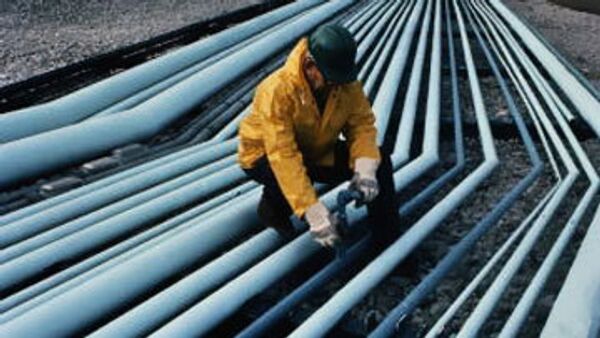Bulgaria's concerns over the environmental impact of Russia-backed plans for an oil pipeline through its territory may pose problems for the project, Russia's energy minister said.
The Burgas-Alexandroupolis pipeline project to pump oil from the Black Sea to the Aegean Sea is controlled by a consortium of Russian state-run companies.
"The Burgas-Alexandroupolis project faces problems as Bulgaria is insisting on improving the environmental efficiency of the project," Energy Minister Sergei Shmatko said during a session of the lower house of parliament on Wednesday.
He also said Bulgaria is also unhappy with the project's economic scheme, as Sofia wants to receive more than just dividends from the project.
The pipeline project was proposed by Russia, Greece and Bulgaria to pump Russian and Caspian oil from the Bulgarian port of Burgas to the Greek port of Alexandroupolis. The three countries signed an agreement to build the 280-km Trans-Balkan pipeline in 2007 following several years of talks.
A controlling stake of 51% in the project is held by the Burgas-Alexandroupolis Pipeline Consortium, owned by Russian pipeline operator Transneft and state-controlled oil producers Rosneft and Gazprom Neft.
Shmatko, however, said he is confident that there will be no problems in implementing another Black Sea oil gas pipeline project, in which Bulgaria is also involved.
The South Stream project is designed to annually pump 31 billion cubic meters of Central Asian and Russian gas to the Balkans and onto other European countries via the Black Sea, with the pipeline's capacity expected to be eventually increased to 63 billion cubic meters.
MOSCOW, December 2 (RIA Novosti)


